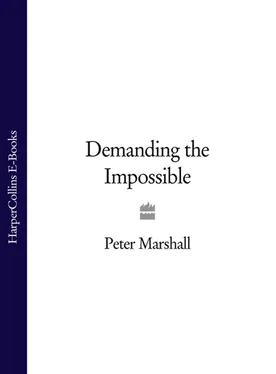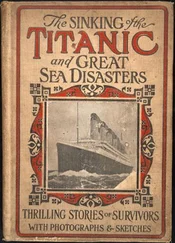But despite the example of the American colonists organizing their own affairs peacefully without government, Paine believed that it was necessary for the people to make a social contract in order to set up a minimal government on the secure basis of a constitution which would guarantee the rights of life, liberty, and the pursuit of happiness.
After the successful outcome of the American War of Independence, Paine returned to England with hopes of building his iron bridge. The outbreak of the French Revolution in 1789 renewed his revolutionary fervour and Burke’s apostasy led him to write his Rights of Man . It was, he recognized, ‘an age of Revolutions, in which every-thing may be looked for’. 26
Burke, in his Reflections on the Revolution in France , had maintained that government and society are complex, fragile and organic entities based on the wisdom of ancestors and could only be interfered with at great peril. He dismissed the ‘clumsy subtlety’ of a priori political theorizing (which he had indulged in boldly in his Vindication ) and suggested that if scholars no longer enjoyed the patronage of the nobility and clergy, learning would be ‘trodden down under the hoofs of the swinish multitude’. 27
Paine spoke on behalf of and to the ‘swinish multitude’, rejecting Burke’s apology for ‘the authority of the dead over the rights and freedom of the living’. 28 He was not a particularly original thinker and adopted the liberal commonplaces of eighteenth-century political theory developed from Locke. But he developed them in a more libertarian and democratic direction. If what he said was not particularly new, how he said it undoubtedly was. Where the accepted language of political discourse was elegant and refined, Paine chose to write in a direct, robust, and simple style which all educated working people could understand. He refused to be ‘immured in the Bastille of a word’ and threatened the dominant culture by his style as well as the ruling powers by his arguments. 29
The First Part of the Rights of Man principally consists of a history of the French Revolution and of a comparison between the French and British constitutions. Paine is mainly concerned here to assert the rights of man against arbitrary and hereditary power. He bases his doctrine of natural rights on the alleged original equality and unity of humanity and argues that they include ‘intellectual rights’ and ‘all those rights of acting as an individual for his own comfort and happiness’. 30 But Paine suggests like Locke that in the state of nature the individual does not have the power to enjoy these rights in security. He therefore recommends that individuals deposit their natural rights in the ‘common stock’ of civil society and set up a government which will protect them. The government itself has no rights as such and must be considered only as a delegated ‘trust’ which the citizens can always dissolve or resume for themselves. The only authority on which a government has a right to exist is on the authority of the people. The end of government is to ensure ‘the good of all’ or ‘ general happiness’. 31 As for engendering the Church with the State, as Burke recommended, Paine dismisses such a connection as ‘a sort of mule-animal, capable only of destroying and not of breeding up’. 32
While these arguments were part of the common eighteenth-century liberal defence of government, in Part II of the Rights of Man Paine broke new theoretical ground which brought him to the verge of anarchism. At the end of Part I he acknowledged: ‘Man is not the enemy of Man, but through the medium of a false system of government.’ 33 He now returns to his distinction between society and government made at the opening of Common Sense and insists that:
Great part of that order which reigns among mankind is not the effect of government. It has its origin in the principles of society and the natural constitution of man. It existed prior to government, and would exist if the formality of government was abolished. The mutual dependence and reciprocal interest which man has upon man, and all the parts of a civilized community upon each other, create that great chain of connexion which holds it together … Common interest regulates their concerns, and forms their law; and the laws which common usage ordains, have a greater influence than the laws of government. In fine, society performs for itself almost everything which is ascribed to government. 34
In a Rousseauist vein, Paine further maintains that man is naturally good but depraved by governments: ‘man, were he not corrupted by governments, is naturally the friend of man.’ Human nature therefore is not itself vicious.
Not only is a great part of what is called government ‘mere imposition’, but everything that governments can usefully do has been performed by the common consent of society without government. Indeed, ‘The instant formal government is abolished, society begins to act. A general association takes place, and common interest produces common security.’ 35 Looking back on the riots and tumult in English history, Paine argued, like modern anarchists, that they had not proceeded from ‘the want of government, but that government was itself the generating cause; instead of consolidating society it divided it … and engendered discontents which otherwise would not have existed.’ 36 But Paine does not look backward to some mythical golden age of social harmony, rather forward to a more civilized society. He suggests as a general principle that ‘the more perfect civilization is, the less occasion has it for government, because the more does it regulate its own affairs, and govern itself.’ 37 Since all the great laws of society are laws of nature, it follows for Paine that civilized life requires few laws.
But unlike his contemporary William Godwin, Paine did not carry his bold reasoning to the anarchist conclusion that government is always an unnecessary evil. He felt as long as the natural wants of man were greater than his individual powers government would be necessary to ensure freedom and security. He therefore proposed a minimal government – no more than a ‘national association’—with a few general laws to protect the natural rights of man. Its end is limited and simple, to secure ‘the good of all, as well individually as collectively’. Paine had a definite preference for republican and representative government based on majority rule, and he wished to anchor it firmly in a constitution. He even praised the American Constitution as ‘the political bible of the state’. 38
By calling on the British people to follow the American and French to form a new social contract and set up a limited government based on a constitution, Paine ultimately departs from the anarchist tradition. At the end of the Rights of Man , he even gives a distributive role to government by proposing that it helps to educate the young and support the old through a progressive inheritance tax.
While Paine has been called the father of English socialism, he was in fact a staunch advocate of business enterprise: universal and free commerce would extirpate war. He never advocated economic equality and thought private property would always remain unequal. His capitalist way of thinking led him to defend representative government in terms of a limited company with citizen shareholders: ‘Every man is a proprietor in government, and considers it a necessary part of his business to understand. It concerns his interest, because it affects his property.’ 39 In his last major work, Agrarian Justice (1797), he did not call, like his contemporary Thomas Spence, for the nationalization and common ownership of land but for a society of small landowners to be achieved through a land tax of ten per cent. Paine’s final vision was of a representative and republican democracy of independent property owners in which every citizen has an equal opportunity to develop his talents.
Читать дальше












